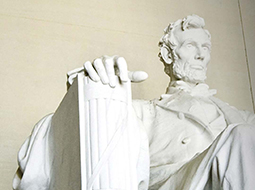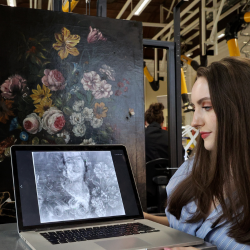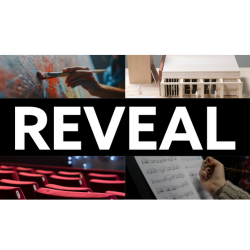'Small Acts of Rebellion’: Resistance that is not a Spectacle, Thursday 28 April, from 3-5pm, online seminar.
The Histories of Activism Research Group is hosting an online multidisciplinary seminar, 'Small Acts of Rebellion’: Resistance that is not a Spectacle. The seminar will feature three short presentations of postgraduate research – including two by Humanities Department doctoral students - and has been organised by our first-year PhD student, Meghmala Bhattacharya. Please email edward.anderson@northumbria.ac.uk for the MS Teams link. All welcome! Hosted by Histories of Activism Research Group
Ghosts of Rebellions Past: 1641 in Nineteenth-Century American Memory, 31st March 2022, 4pm
Special Seminar co-sponsored by the Northumbria University Institute of Humanities and American Studies Research Group, with Prof. Aaron Sheehan-Dean, Fred C. Fey Professor of Southern Studies at Louisiana State University; Mary Ball Washington Visiting Chair in American History, University College Dublin, 2021-22.
Space in Holocaust Memory and Representation, 19-21
November 2021, Institute of Humanities, University of Northumbria,
UK.
While
spatial analysis of this kind has characterized recent work by historians and
geographers, who use techniques of mapping and geo-visualization (as for
instance in the volume Geographies of the Holocaust, eds Anne Kelly Knowles,
Tim Cole and Albert Giordano), there has been less work on cultural examples of
space and Holocaust memory. This conference therefore aims to explore the
importance of the spatial aspects of the Holocaust years, and their implication
in the commission and remembrance of the crime, as evident in artistic and
figurative expression, conceived in its broadest sense.
Transnational and Diaspora Politics and Activism Workshop, 24-25 August 2021. Hosted by the Global and Transnational History Research Group, and the Histories of Activism Research Group, at Northumbria University’s Institute of Humanities.
This workshop brings together 20+ scholars - across four panels over two days - who are conducting exciting new research on histories of transnational and diasporic political movements and activism. The topics explored at the workshop range from studies into pro- and anti-apartheid activism, to student and green politics, to black power and anti-colonial solidarities, to the politics of museum collecting, and much more.
Stories From the Margins: Indigenous Connections to the Land, 29-30th June 2021, Institute of Humanities, Northumbria University.
This conference will explore Indigenous connections to the land through storytelling. The term "Indigenous" encompasses a wide range of peoples, diverse culturally, linguistically and geographically. Originating from the Latin root indigena, which means "sprung from the land", it has been used in international and United Nations contexts to define peoples in relation to their colonisers. Find out more on the conference website https://storiesfromthemargins.com/
A Sacred Covenant? Historic, Legal and Cultural Perspectives on the Development of Marital Law, Thursday 20th May 2021, Online
This Journal of Legal History and Northumbria University funded one-day virtual conference seeks to explore the changing legal and cultural definitions of marriage across geographical locations or jurisdiction from the period c.1450 to present day, paying particular attention to the changing perspectives on age, same-sex marriage, polygamy, divorce, and remarriage. This conference will create an exciting space where historical, literary, medical, artistic, and cultural perspectives can be considered alongside real-world experiences, allowing the discovery and exploration of parallels and contrasts across borders and time. Keynote speaker: The Rt Hon. the Baroness Hale of Richmond DBE. Papers can be viewed on the conference website https://asacredcovenant.com/papers/
Social Movements and the Challenges to State Socialism in Central and Eastern Europe, 27-28 March 2020, Northumbria University
This two-day conference, marking thirty years since the tumultuous events of 1990 reshaped the political and social landscape of Central and Eastern Europe, brings together scholars to offer a fresh assessment of the way in which communist rule was being contested before the collapse of state socialism. This conference is particularly interested in the ways that social movements and transnational actors challenged the existing systems and power relations. Alongside contributions from the discipline of History, the organisers welcome papers that draw on examples from Literature, Music, Art and Film. This conference is hosted by Northumbria's Histories of Activism Research Group, with the support of the Institute of Humanities and the Society for the Study of Labour History (SSLH).
Sex and Gender Politics: Medieval and Early Modern Studies Symposium, Wednesday, 9 October 2019, Institute of the Humanites, 9am-6pm
This one-day event hosted by the Medieval and Early Modern Studies research group at Northumbria University, Newcastle, brings together academics, early career researchers, and PhD students for a symposium linking new and more traditional approaches to medieval and early modern gender studies, including an interdisciplinary mix of architecture, music, literature, history, and media studies. We'll have papers on topics ranging from violence to political agency and a keynote by Dr Elena Woodacre (University of Winchester), author of The Queens Regnant of Navarre: Succession, Politics and Partnership, 1274-1512, lead editor of the Routledge History of Monarchy, and founder of the Royal Studies Network.
Serial [Gendered] Subjects: Periodicals, Identities, Communities, The Network of American Periodical Studies, 20 September 2019, Hedley Suite, Sandyford Building, 9am-6pm
The symposium is hosted by the Humanities Research Institute and the Gendered Subjects Research Group at Northumbria University and is supported by the University of Sussex Centre for American Studies, the Women’s History Network and the British Association for American Studies. The full programme is available here. Keynote speaker: Professor Mary Chapman, (University of British Columbia) Slave Girls and Underground Railways in the Periodical Publications and Biography of Edith Eaton (Sui Sin Far)
New Lives, New Landscape: rural modernism in twentieth-century Britain, 1-2 August 2019
The post-1945 decades in Britain were a period of technological innovation and expansion, with new energy, communication and leisure infrastructure having far-reaching social, economic, political and cultural effects. These changes are associated with the modernisation of urban life, but the necessary infrastructure was often situated in rural environments. This conference will consider how twentieth-century rural landscapes became modern or modernist, what this meant for how the countryside and rural life was understood and experienced, and how these developments generated a new suite of rustic ideals and imagery. Did the modernisation of the British countryside generate new conceptions of rural heritage and new forms of regional identity? Do conceptions of the rural modern challenge established narratives of post-war change?
Exploring the Wildwood, Banner Project Event, Monday 1 July 2019, The Lit & Phil, Westgate Road, Newcastle-upon-Tyne, 1-4pm.
The Kielderhead Wildwood project (supported by the National Lottery Heritage Fund) aims to restore natural processes and rebuild healthy ecosystems in a remote area of land in Northumberland. Using local seed stock and planting in accordance with natural propagation patterns, the project is creating a landscape similar to the one that may have existed in the area many thousands of years ago. The habitat created will support a diverse range of flora and fauna, including woodland birds and water voles. In the long term, the site will allow re-colonisation by missing species such as pine marten, black grouse and golden eagle, and the potential reintroduction of iconic species such as beaver. Join Northumberland Wildlife Trust and academics from Northumbria University and the University of Cumbria to hear more about the Wildwood, its history and ecology, its place in debates about rewilding and climate change, and what it’s like to visit and experience this remote landscape. We will also look ahead to future research about the Wildwood.
Offensive Shakespeare, Banner Project Event, 31 May 2019, Lipman Building, Rm 121, 10.00am - 5.30pm
How should we engage with Shakespeare in our current ‘age of offence’, an age characterised by trigger warnings, no-platforming, fierce debates surrounding free speech, and threats to defund arts activities and humanities projects for offending political factions or sensibilities? As the writer with arguably the greatest cultural capital not only within Anglophone contexts but globally, he is extensively taught, staged, adapted, and used for a variety of political purposes. He is both ‘established’ and institutional, as well as a site for the ‘radical’ and experimental. Many of these uses have caused offence, most recently when Julius Caesar was staged in New York with the eponymous character resembling Donald Trump. By using Shakespeare as a ‘hook’, this one-day event will start to construct a broader theory of offence, which can then be applied to analysing other manifestations of the phenomenon
The Six Triple Eight: No Mail, Low Morale, Film Screening, 14 May 2019, Lipman Building, Rm 031, 6.30 - 8.00pm
The Institute of Humanities is pleased to host the North East premiere of this documentary, in collaboration with the Embassy of the United States and Lincoln Penny Films, an award-winning film company established with the purpose of finding and sharing the important stories of ordinary people and events hidden in American history. The film tells the story of the 6888th Central Postal Directory Battalion of the U.S. Women’s Army Corps, the only all-female African American unit to serve overseas during World War II. Stationed in Birmingham, England in 1945, the unit improved morale by clearing a two-year backlog of more than 17 million pieces of correspondence between millions of American military personnel serving in the European theatre and loved ones back home. In doing so, the 6888th challenged racial and gender stereotypes and contributed to the transformation of the U.S. military following the war. The screening will be followed by a Q&A session with Elizabeth Helm-Frazier, co-producer of the film, moderated by Brian Ward, Professor in American Studies at Northumbria.
Feminist Activism 1968-2018, Spring Symposium, 1 May 2019, Sandyford Building, Rm 201, 1.30pm - 5.30pm
An afternoon symposium hosted by the Gendered Subjects Research Group. While some current women’s activism receives considerable attention (e.g. the 2018 centenary of suffrage for some women, #Timesup, and #MeToo) other forms are comparatively neglected (e.g. Black and Minority Ethnic women’s campaigns against oppressive migration policies). The history of women’s activism has also been overlooked or misrepresented by the media and academia. The symposium will examine how feminist activism has been represented and remembered, and how that activism continues to inform political movements in the 21st century.
Female Entrepreneurs in the Long Nineteenth-century: In Search of a Global Perspective, 16-17 April 2019
This two-day workshop will bring together scholars and doctoral students from Australasia, Africa, Europe, Asia and North America for a workshop that is the first of its kind to address nineteenth-century female entrepreneurship in a global context. This exciting and ambitious colloquium will enable scholars who are leading the way in business and gender history in specific geographic regions to share ideas and methodologies, draw on areas of commonality, identify areas of difference, and create a research network that will lift the historiography of female business ownership from fragmented individual studies to a cohesive international project. Organisers: Dr Jennifer Aston (Northumbria University) & Dr Catherine Bishop (Macquarie University). Participants include Prof. Mary Yeager (UCLA) & Prof. Beatrice Craig (Ottawa). If you would like to attend, please email Dr Aston (jennifer.aston@northumbria.ac.uk) for further details.
Courtroom Narrative and Legal Meanings Through the Ages, 12 December 2018, 2pm, Lipman 332
An English Language & Linguistics / Power and Politics in Language and Literature Symposium. This half-day symposium, bringing together scholars from both Law and Linguistics, seeks to elucidate the nature of courtroom language as represented in proceedings from the 17th century through to the present day. A central concern for forensic linguists and researchers of public discourse, courtroom interactions such as those explored by our speakers have also proved to be an object of interest for legal scholars, literature scholars and historians alike. With reference to real-life cases the speakers will illustrate the varied ways in which language both embodies the institutional authority of the law, and maps neatly on to particular ideologies which permeate that institution and, as a result, our lives.
Music and Social Movements, 30 November 2018
This half-day symposium, funded by the US Embassy in London, examines the relationship between social movements and popular music, probing the way in which the two intersect, influence, and support each other. It will include a series of academic papers and an interactive workshop at which delegates will be encouraged to think about ways of using popular music in their research and in the classroom. The keynote address will be delivered by Dr. Joseph O’Connell of Cardiff University on the significance of the 1985 Live Aid event. The symposium will conclude with an event at Newcastle City Library, where Professor Brian Ward (Northumbria) will be in discussion with Bob Stanley (St. Etienne; author of Yeah, Yeah, Yeah: The Story of Modern Pop) about the practice of writing about music.
Identities in Conflict, 31 October 2018
This half-day symposium is the inaugural event of the new Conflict and Society research group. This symposium will broadly examine the theme of 'identity'. We will be bringing together newer and established scholars to explore the various intersecting ways identities are shaped, created and ruptured by war and conflict. The keynote address at this event will be delivered by Professor Wendy Webster, University of Huddersfield, whose recent book Mixing It (OUP, 2018) has been positively reviewed both inside and outside the academy.











